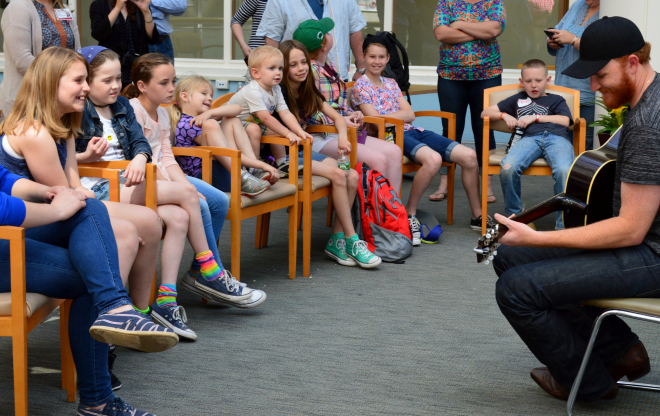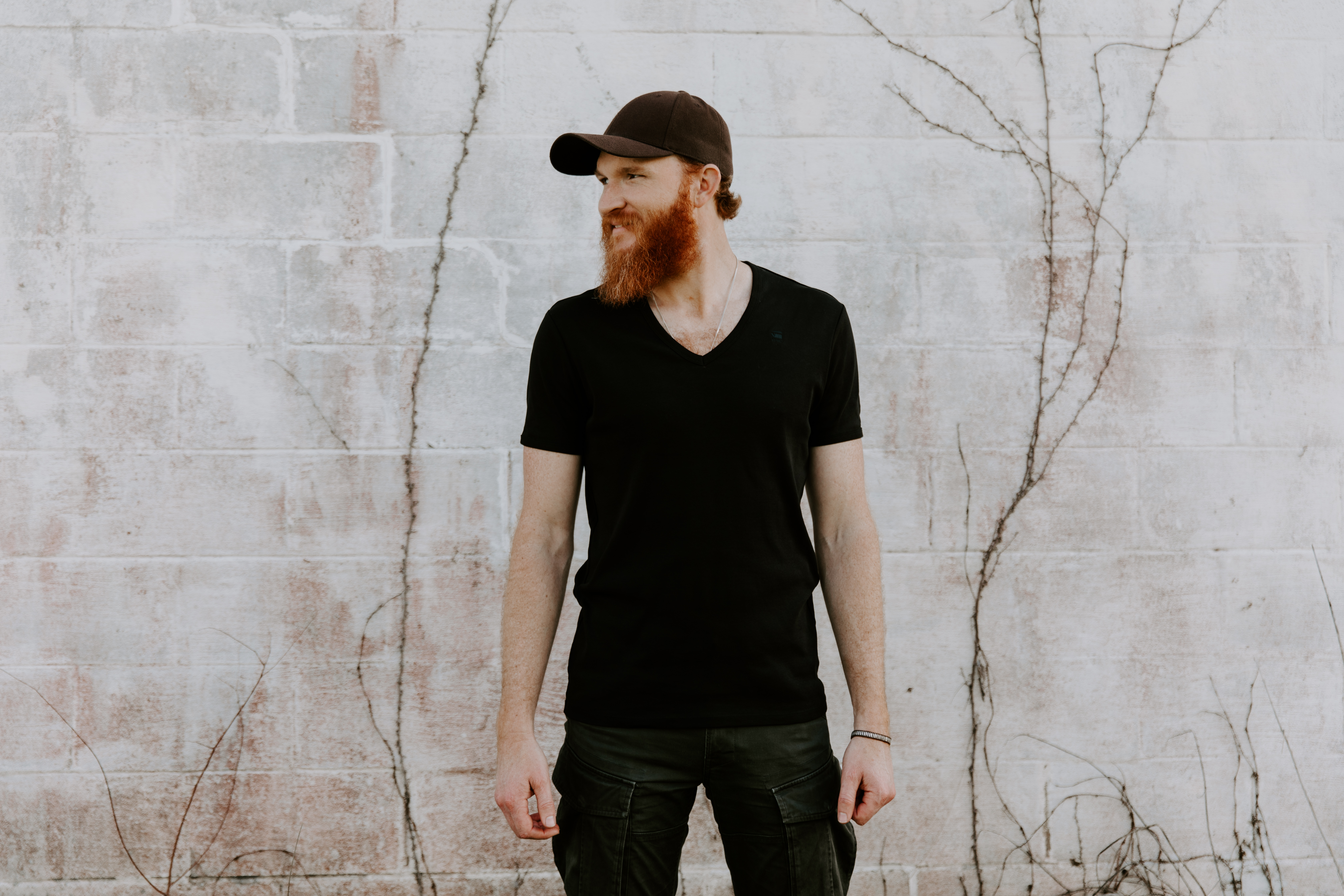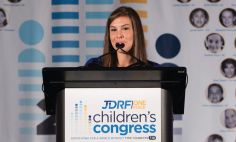Singer and songwriter Eric Paslay may have chosen a different career path than his original dream of pediatrics, but he’s still helping kids. Paslay has recorded hit songs and written for other country music stars like Amy Grant and Lady A. He also loves his role as an advocate for people with type 1 diabetes—and sharing his own journey with the disease. He spoke with NIH MedlinePlus Magazine about life with type 1 and his message of hope for others who have it.
How old were you when you were diagnosed with type 1 diabetes? Were you experiencing symptoms that led you to get checked?
I was 10 years old when I was diagnosed. I did have some classic diabetic symptoms: I was thirsty and drinking a lot of fluids. I remember walking down my school hallway and feeling dizzy and everyone looking fuzzy. My grandmother, who was a nurse’s assistant, noticed it pretty quickly and took me to the doctor to get tested. Sure enough, my blood glucose levels were very high, and I was diagnosed with type 1 diabetes.
How did type 1 diabetes affect you as a kid?
When I had low blood sugar levels at school, I would have to raise my hand and ask to get a juice box and crackers. Even though it was for my medical condition, I was afraid to do it because I didn’t want to disrupt the class. The same thing would happen running around training for my baseball team. But my coach would say, “Look at Paslay. He just had low glucose and he’s passing you up.” So it also pushed me harder. It also gave me more responsibilities to be aware of my body and health, including eating healthier. I am grateful for that.
I am also grateful that I had such great doctors who made sure I got the right care. I grew up in the little town of Temple, Texas, which is near Baylor University. I was lucky to have amazing doctors and nurses who were experts in caring for kids with type 1 diabetes.
How do you manage your condition now? How has that changed during your lifetime?
Thanks to scientific research, we have had amazing advances in technology in the last 30 years. The continuous glucose monitoring (CGM) system and insulin pump I use are mind-blowing. I wear a patch that constantly monitors my blood glucose levels. The patch then communicates with my insulin pump to keep my insulin at healthy levels. The CGM also sends the information to an app on my smartphone so I know exactly where my blood glucose level is headed.
I’m very grateful that I can afford this new technology. It’s definitely adding life to my life. I get to live more by keeping my diabetes controlled.
Another big benefit is that I get to sleep through the night a lot more. Before this technology, when I was a kid, my parents would regularly come in to ask how I was feeling and test my blood. Now parents can just check their phone app and know their kid is OK.
How do diet, exercise, and a healthy lifestyle play into managing your type 1 diabetes?
I stay very aware of what I’m eating, and I try to stay healthy. We’ve got a farm, so I’m always active out there. As a songwriter and a musician, my job is to “move air” for a living. So it’s nice to move dirt, grow roots, and pick fruit and other things for a change.
I can still enjoy great food, but I try to make wise choices, eat things in moderation, and monitor my glucose levels. Diabetes has taught me how everything in life truly needs a balance and how every action has an effect.
Does your diabetes affect your music and performing?
Before I had my CGM and insulin pump, it did affect my career a lot. There were times when I was on stage performing that I came very close to not being able to continue with the show. My manager had to run and get orange juice for me to drink to raise my blood glucose levels. But now when I’m performing, my tour manager is looking at the phone app tied to my CGM. And we always have a cup full of orange juice ready on stage that he signals me to drink if needed.

When meeting children who also have type 1 diabetes, Paslay says he tells them to not let their condition stop their dreams.
What led you to become an advocate, particularly for children with type 1 diabetes?
Before I went into music, I was planning to become a pediatric endocrinologist (a doctor who treats children with hormone disorders, including diabetes). I thought to myself, “I’m a kid with diabetes, and my doctor has diabetes. I trust him because he has what I have. Maybe this is what God wants me to do, to go help kids with diabetes?”
But then I started writing songs and singing, and people encouraged me to pursue a career in music. They said, “Dude, you probably should move to Nashville. You’re pretty good!” Well, now I make music, and I’m getting to meet with and talk with kids in hospitals who have type 1 diabetes. I urge them to make those decisions that lead to happiness. I love doing that, so I’m glad my plan worked out! I also did a podcast series that was sponsored by Dexcom, the maker of my own diabetes monitor system. And I've also worked with Beyond Type 1, which is nonprofit that advocates on behalf of those with type 1 diabetes.
What message do you have for others living with type 1 diabetes?
Live your life to the fullest. Don’t let diabetes rule your life. If you have a dream, pursue it. There is nothing you can’t be in life…except maybe be in the military. Go chase your dreams, have fun doing it, and realize the race is part of life. We all have obstacles. Hopefully whatever struggles are in your life teach you empathy, sympathy, and love and make you even stronger on the other side.
What are you up to professionally?
I put out a new EP in December called Perfect Stranger. And I wrapped up the Perfect Stranger European tour right before Christmas. I plan on staying busy in 2024 with more new music. I'm always touring!







